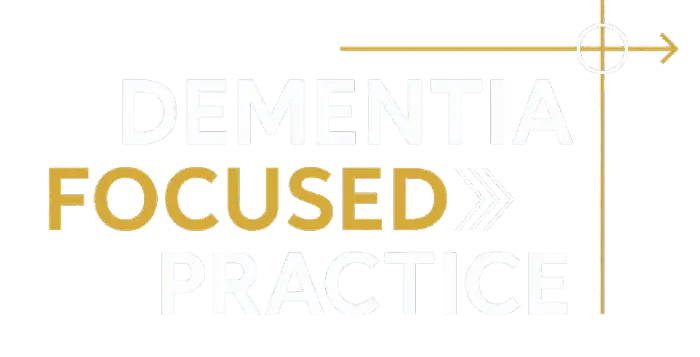Somerset County Alzheimer’s and Dementia Planning Lawyer

A memory loss diagnosis brings several pressing questions to mind. You or a family member may wonder what the future holds and how to best plan for long-term care needs. Additionally, you should take steps such as setting up an advance healthcare directive, choosing a power of attorney, and addressing other estate planning needs.
At Van Dyck Law Group, our New Jersey dementia planning lawyers are here to support you with your needs. We’re always available to answer your questions, we’re ready to prepare the appropriate paperwork to carry out your wishes, and we will surely advise you on your options. If you or a loved one has concerns about dementia legal planning, please contact us for a consultation to learn more.
Can a Somerset County Dementia Planning Attorney Help with Setting Up a Trust for Estate Planning?
Yes. We’ll discuss your needs and goals first, and if a trust is a good option for your situation, we can help you establish one.
There are two main types of trusts: The revocable and irrevocable trusts. Both of these trusts allow you to transfer assets out of your personal estate, avoiding probate. The main distinction between a revocable and an irrevocable trust lies in the level of control you retain is that the revocable trusts can be modified or dissolved, while irrevocable trusts generally cannot be changed once established.
A revocable living trust is a legal arrangement that lets you transfer assets into a trust overseen by a trustee. When setting it up, you can choose who will be the trustee and the beneficiary. You have the option to place assets into the trust while you’re alive or arrange for it to be funded after your passing.
In some cases, you might act as the trustee of your revocable trust during your lifetime, giving you full authority to manage and revise the trust as needed. This setup offers significant control and flexibility, where you can amend the terms or dissolve the trust entirely at any time. After your death, the assets in the trust are distributed to the beneficiary. The successor trustee you designated takes over management and has the authority to oversee how the beneficiary uses those funds.
However, this is not always the best option for a person with dementia. You may want to name a different trustee who can manage your trust when you are unable to do so. Also, a revocable trust may not be ideal if you are hoping to receive Medicaid benefits.
An irrevocable trust functions much like a revocable trust, with one key difference. Here, you relinquish the ability to modify its terms, withdraw assets, or dissolve the trust once it’s been created. By surrendering control of the assets, you may gain certain protections from creditors and legal claims. This type of trust is sometimes used to protect assets while allowing the original owner to remain eligible for Medicaid.
What if Dementia Symptoms Force You to Retire Before You’re Ready?
Affording medical and long-term care costs can be difficult for many families. However, financial concerns can be even more pressing for those who are still working when diagnosed.
While Alzheimer’s and dementia primarily affect people older than 65, some patients are diagnosed at a younger age. Research suggests that dementia diagnoses in younger patients have increased in recent years, although the reasons why are not clear.
If you or a family member receives a dementia diagnosis when you’re not ready to retire, you might be able to continue working for some time. However, at some point, your symptoms will likely interfere with your ability to work.
When this happens, you may be eligible for Social Security Disability Insurance (SSDI). This program offers monthly financial support to those who can’t maintain employment because of a disabling condition. This disability may be physical or mental, as long as it significantly limits the person’s capacity to work.
However, there are some limitations. The SSDI is based on your work credits, which are earned each year when you pay income taxes.
How do you build work credits? The formula is adjusted each year. In 2025, you gain one credit for every $1,810 of income. Earning at least $7,240 during the year qualifies you for the maximum of four credits. People working full-time usually gain the maximum credits, as do many part-time workers.
How Many Work Credits Do You Need to Receive SSDI?
The number of credits needed to qualify for SSDI benefits depends mainly on your age. Most applicants must have a total of 40 credits, with at least 20 earned in the ten years immediately before their disability. However, younger individuals may qualify with fewer credits based on their age at the time they became disabled.
Satisfying work credits is only the first hurdle. You will also need to complete complex paperwork, and the Social Security Administration (SSA) will review your case to determine if your disability qualifies. To be medically eligible, the following conditions must apply:
- Your health condition keeps you from engaging in work that counts as substantial gainful activity (SGA).
- Because of your impairment, you’re unable to resume your previous job or adjust to new types of employment.
- Your condition has lasted, or is expected to last, for at least 12 consecutive months, or is expected to result in death.
The review process can be challenging, and errors in paperwork are common. Some people experience frustration when they receive a denial, even though they are unable to work. Engaging the help of a Somerset County dementia planning attorney can help reduce the difficulties and improve your chances of success when you apply for SSDI.
What if You’re Retired and You Still Can’t Afford Long-Term Care for Memory Loss?
If you are already retired, you probably won’t be eligible for SSDI, but you may benefit from other programs such as Medicare, Medicaid, and Supplemental Security Income (SSI). As with SSDI, these programs have various requirements, and receiving acceptance is not always easy.
Medicare covers some medical costs, but it does not fund long-term stays in assisted living facilities or nursing homes. Medicaid and SSI may help with these costs, but these programs require that beneficiaries have very low income and assets. For many retired people, this can mean “spending down” their savings to pay for care before Medicaid or SSI can be used.
As discussed earlier, placing some of your assets in a trust may help you to maintain your Medicaid eligibility while saving assets for your heirs. However, this process must be done carefully, and starting earlier will allow you more options. If you have recently received a dementia diagnosis, we recommend contacting a Somerset County Alzheimer’s planning lawyer immediately.
Somerset County Alzheimer’s and Dementia Planning FAQ
What is a Power of Attorney and Why Do You Need One?
A power of attorney (POA) is a legal document in which you appoint someone to make decisions on your behalf if you become unable to do so. This document is especially important for people recently diagnosed with any condition that may affect cognitive function.
The person you authorize through a POA is known as your agent, and they are legally empowered to act in your place. While you can choose anyone you trust for this role, it’s a decision that deserves careful thought, as the agent may be responsible for managing significant matters. Many people opt for a trusted family member or close friend.
There are two main categories of decision-making that a POA may affect: financial and legal matters, and medical decisions. The same person can serve as your POA for both areas, but you could also choose to separate the roles.
A medical power of attorney is typically paired with an advance healthcare directive and living will, so your POA will have guidance on what kind of care plan you do or don’t want. Your Somerset County Alzheimer’s planning attorney can help you draft these documents and answer any questions you have during the process.
Can Patients with Dementia Give Informed Consent?
Sometimes. Patients who still have capacity can consent and sign documents, such as those discussed above.
What is capacity? It generally means that you can understand what’s going on, the decision you’re making, and its potential consequences.
Who Decides if a Person with Memory Loss has Capacity?
To avoid future legal problems, you or your loved one shouldn’t try to figure it out on your own. A licensed healthcare provider can perform an exam to determine if a person is incapacitated. If not, they can proceed with making legal planning decisions.
If your loved one is incapacitated, you may need to seek a guardianship or conservatorship in court to assist them.
Work With Our Somerset County Alzheimer’s and Dementia Planning Law Firm Today
Dementia planning can feel confusing or overwhelming for people diagnosed with dementia and their loved ones. For this reason, it can be helpful to seek guidance from a dementia planning professional in Bridgewater, Basking Ridge, Martinsville, or Peapack-Gladstone.
If you or a loved one needs guidance with legal planning related to memory loss or general estate matters, the Van Dyck Law Group is here to help. Our New Jersey estate planning attorneys are ready to walk you through your options, address any concerns, and prepare the necessary legal documents based on your decisions. We understand how overwhelming a diagnosis like this can be, and we’re committed to providing compassionate support throughout the planning process. Please contact us at (609) 293-2621 for assistance.


